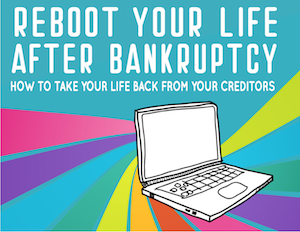Inflation and interest rates are the two primary culprits.
Bankruptcy can actually be a fix to this problem and is something that everyone should evaluate NOW. Does it make sense to clear the deck and start fresh? Especially when that deck is stacked against most Americans who are not otherwise wealthy. Especially, for anyone who has private student loans, the decision is pretty much a no brainer — bankruptcy can result in a full discharge of many private student loans or a very low payment plan, with very low interest. Basically, a way out.
High credit card balances, underwater vehicle loans, unpaid rent — bankruptcy can easily fix this.
 Reboot Your Life: Tampa Student Loan and Bankruptcy Attorney Blog
Reboot Your Life: Tampa Student Loan and Bankruptcy Attorney Blog



